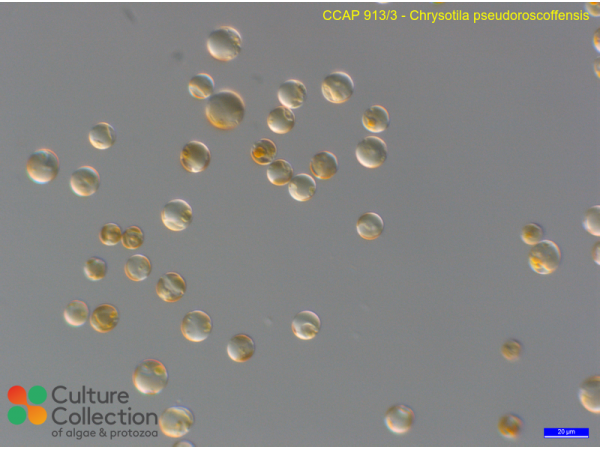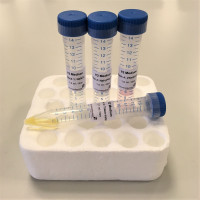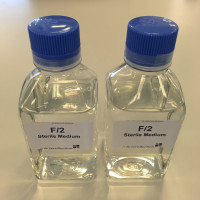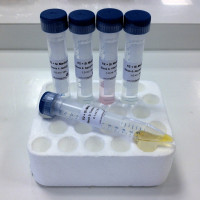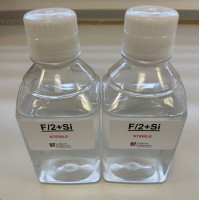(Bold text = submission by CCAP staff or collaborators)
Note: for strains where we have DNA barcodes we can be reasonably confident of identity, however for those not yet sequenced we rely on morphology
and the original identification, usually made by the depositor. Although CCAP makes every effort to ensure the correct taxonomic identity of strains, we cannot guarantee
that a strain is correctly identified at the species, genus or class levels. On this basis users are responsible for confirming the identity of the strain(s) they receive
from us on arrival before starting experiments.
For strain taxonomy we generally use AlgaeBase for algae and
Adl et al. (2019) for protists.
| Attributes | |
| Authority | (Gayral & Fresnel) Andersen, Kim, Tittley & Yoon 2015 |
| Isolator | Parke (1964) |
| Collection Site | Station 17, English Channel |
| Climatic Zone | Temperate |
| Notes | Identity confirmed through ASSEMBLE EU funding 2013. Coccoliths - not present. Renamed Sept 2016, taxonomic revision. |
| Axenicity Status | Bacteria present |
| Area | Europe |
| Country | UK |
| Environment | Marine |
| GMO | No |
| In Scope of Nagoya Protocol | No |
| ABS Note | Collected pre Nagoya Protocol. No known Nagoya Protocol restrictions for this strain. |
| Collection Date | c 1964 |
| Original Designation | Plymouth 317 |
| Pathogen | Not pathogenic: Hazard Class 1 |
| Strain Maintenance Sheet | SM_MarinePrymnesioHaptoChryso.pdf |
| Toxin Producer | Not Toxic / No Data |
| Type Culture | No |
| Taxonomy WoRMS ID | 837014 |
| Synonyms | Pleurochrysis pseudoroscoffensis |
| Formerly Listed in CCAP as | Coccolithus pelagicus (Wallich) J. Schiller 1930,Pleurochrysis pseudoroscoffensis Gayral & Fresnel 1983 |
CCAP 913/3
Chrysotila pseudoroscoffensis
- Product Code: CCAP 913/3
- Availability: See Availability/Lead Times
Related Products
CCAP MAF2-C
f/2 Medium
CONCENTRATED STOCKS
Non-sterile concentrated stocks to make up 5 litres of f/2 medium. f/2 medium is used for culturing
CCAP MAF2-P
f/2 Medium
1 LITRE PREMADE
1 litre of sterile, ready to use, f/2 medium. f/2 medium is used for culturing marine algae. Click
CCAP MAF2S-C
f/2+Si Medium
CONCENTRATED STOCKS
Non-sterile concentrated stocks to make up 5 litres of f/2+Si medium. f/2+Si medium is used for cul
CCAP MAF2S-P
f/2+Si Medium
1 LITRE PREMADE
1 litre of sterile, ready to use, f/2+Si medium. f/2+Si medium is used for culturing marine diatoms
CCAP MAF2Q-C
f/2 Quad Medium
CONCENTRATED STOCKS
Non-sterile concentrated stocks to make up 5 litres of f/2 medium. f/2 Quad medium contains 4x the
CCAP MAF2Q-P
f/2 Quad Medium
1 LITRE PREMADE
1 litre of sterile, ready to use, f/2 Quad medium. f/2 Quad medium contains 4x the standard f/2 nit

